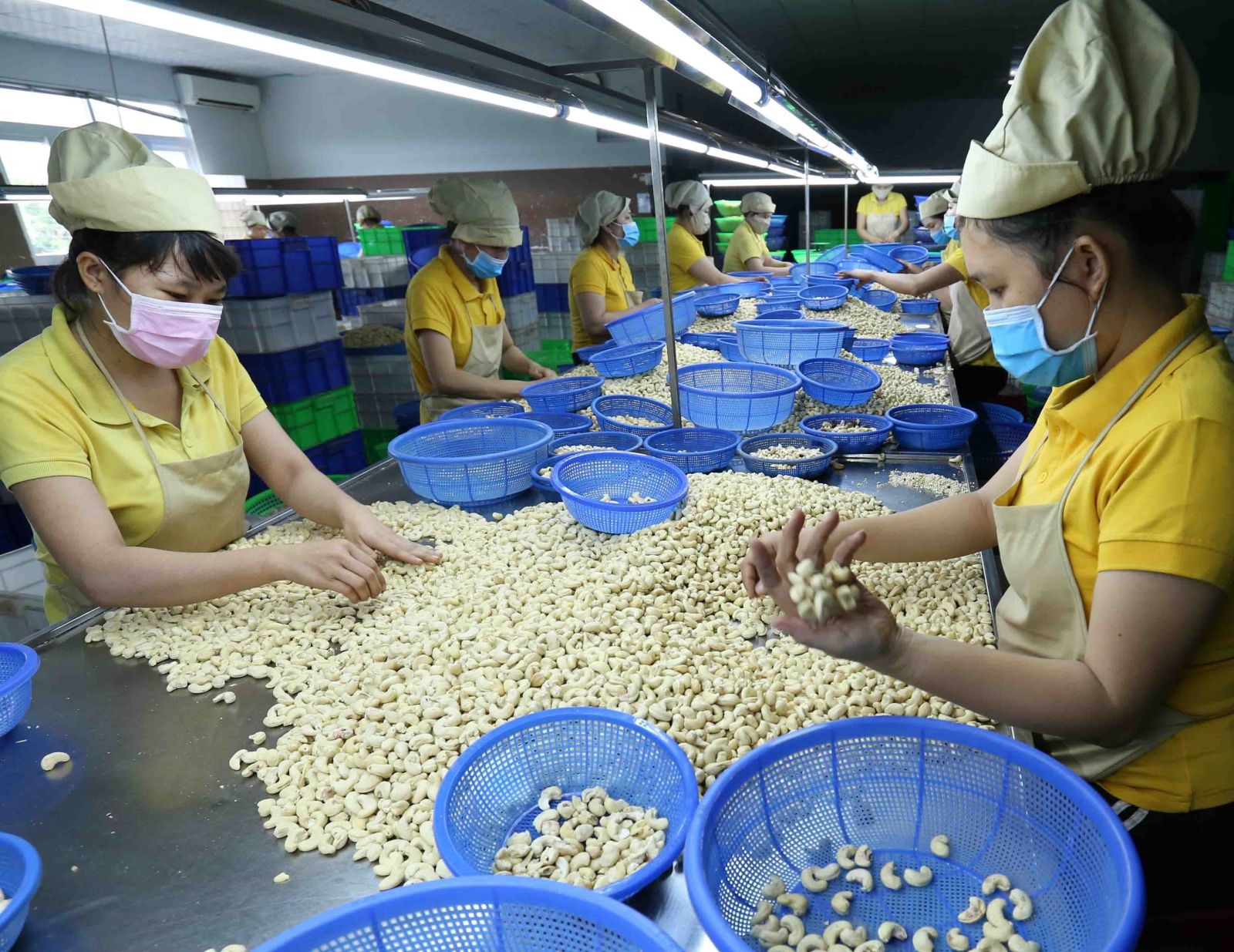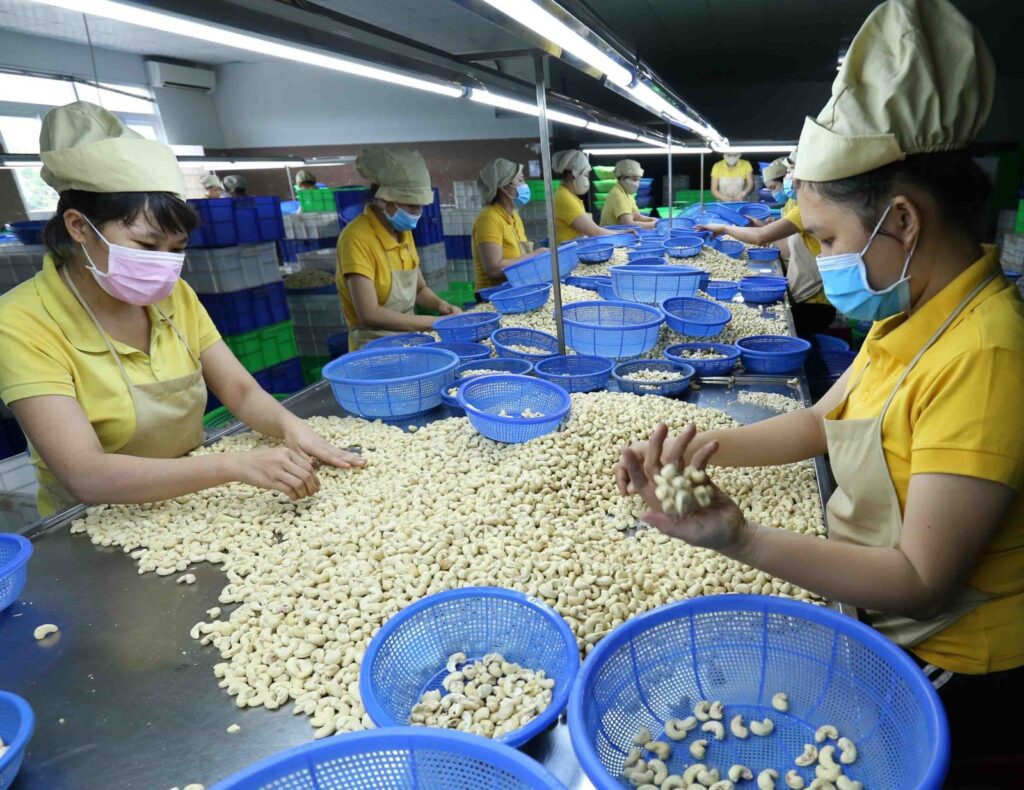The Canadian market imports about 400 million USD/year of processed nut products. The growth rate of the processed nut market in the period 2018-2021 is 16%, while that of Vietnam is 51%, demonstrating the positive effect of the CPTPP, helping Vietnam to have more orders (from 19 million to 29 million USD)
Canada’s cashew nut market – characteristics and size
Canada’s demand for processed nuts has increased rapidly over the years due to the need to eat clean, plant-based protein sources to protect health. Nuts are known for being a great source of fiber, easily digestible protein, and a source of heart-healthy fats, as well as many minerals and vitamins. According to the annual Statista Market Forecast, Canada consumes nearly $1.8 billion worth of nuts, which means each person consumes an average of nearly $50 per year, or about 4kg per year. This market is forecasted to continue to grow at a rate of about 5.4%/year from now until 2027 (According to Marketresearch’s forecast). In addition to the health benefits, nuts are convenient, easy to carry and safe (many organic nuts). Currently, Canadians prefer mainly a variety of nuts such as:, cashews, walnuts, pecans, almonds, macadamia nuts, peanuts, hazelnuts and more recently pumpkin seeds, melon seeds, sunflower seeds.

In the HS code group 200819, Vietnam mainly exports salted roasted cashews to Canada and accounts for 5.5% of the processed nut market share, ranking second after the United States. The United States accounts for mainly 80% of the market. The third and fourth in terms of HS 200819 market share are Thailand and Lebanon, with market shares of 5 and 4% respectively. Other countries such as China, Turkey, Sri Lanka, India, Indonesia, and the Philippines are among the top 10 exporters of processed nuts to Canada but have a negligible market share.
According to local data, in the first nine months of this year, exports of processed cashew nuts to Canada continued to increase (14.8%) over the same period in 2021, reaching $24.3 million. It is expected that in 2022, Vietnam’s processed cashew nut export turnover to Canada will reach over 30 million USD.
As for shelled cashew kernels (HS code 080132), Vietnam is the country with the main and stable market share over the years, there is not much competition (78-79%). Other countries that also export cashews to Canada are Brazil, Cote d’Ivoire, Ghana, Mozambique, India. Except for Brazil which has 10% market share, other countries have negligible market share.
In addition to shelled cashews, every year Canada also imports a negligible amount of unshelled cashews from Vietnam. For this product (HS code 080131), Vietnam is also a country with a major market share (95%). The export value of unshelled cashews in 2021 will reach nearly $800,000. In the first 9 months of 2022, Canada’s import demand for this item increased sharply (160% compared to the same period in 2021); Up to now, Canada has imported 1.38 million USD worth of shell treatment from Vietnam.
Potential market and opportunities for cashew industry
Aggregation from local data shows that on average, Canada imports about 17-18,000 tons of cashew kernel per year. The average import per month is 1,300 tons. The average price in 2021 will reach nearly 7,000 USD/ton. This price increased sharply compared to the 2020 price due to the high shipping price. The three largest cashew processing centers of Canada are Quebec (Montreal), Ontario (Toronto) and British Colombia (Vancouver). After processing, the average price of cashew nuts is $9800/ton, or about $10-12/kg. The average price of processed cashew nuts exported from Canada is 12,000 USD/ton.
From a consumption perspective, Canadian consumers are quite fond of cashews compared to other nuts because they think that cashews contain many antioxidants, vitamins and good fats for the heart and eyes. As a good nut for weight loss, Canadian consumers often choose cashews to replace meals. However, Canadian consumers often tend to choose packages of mixed nuts to ensure the absolute nutritional balance and delicious, easy to eat. Many products made in Canada have gone in the direction of mixing cashews with almonds, macadamia nuts, and Brazil nuts; or mix cashews with dried fruits such as dried pineapple, dried dragon fruit, grapes and dried bluberry. Canadian consumers care a lot about organic products and certificates that confirm the business’s green, sustainable, and fair (gender equality) production processes. In addition, Canadian consumers are also very interested in how to pack and preserve (vacuum, recyclable packaging).


 中文 (中国)
中文 (中国)